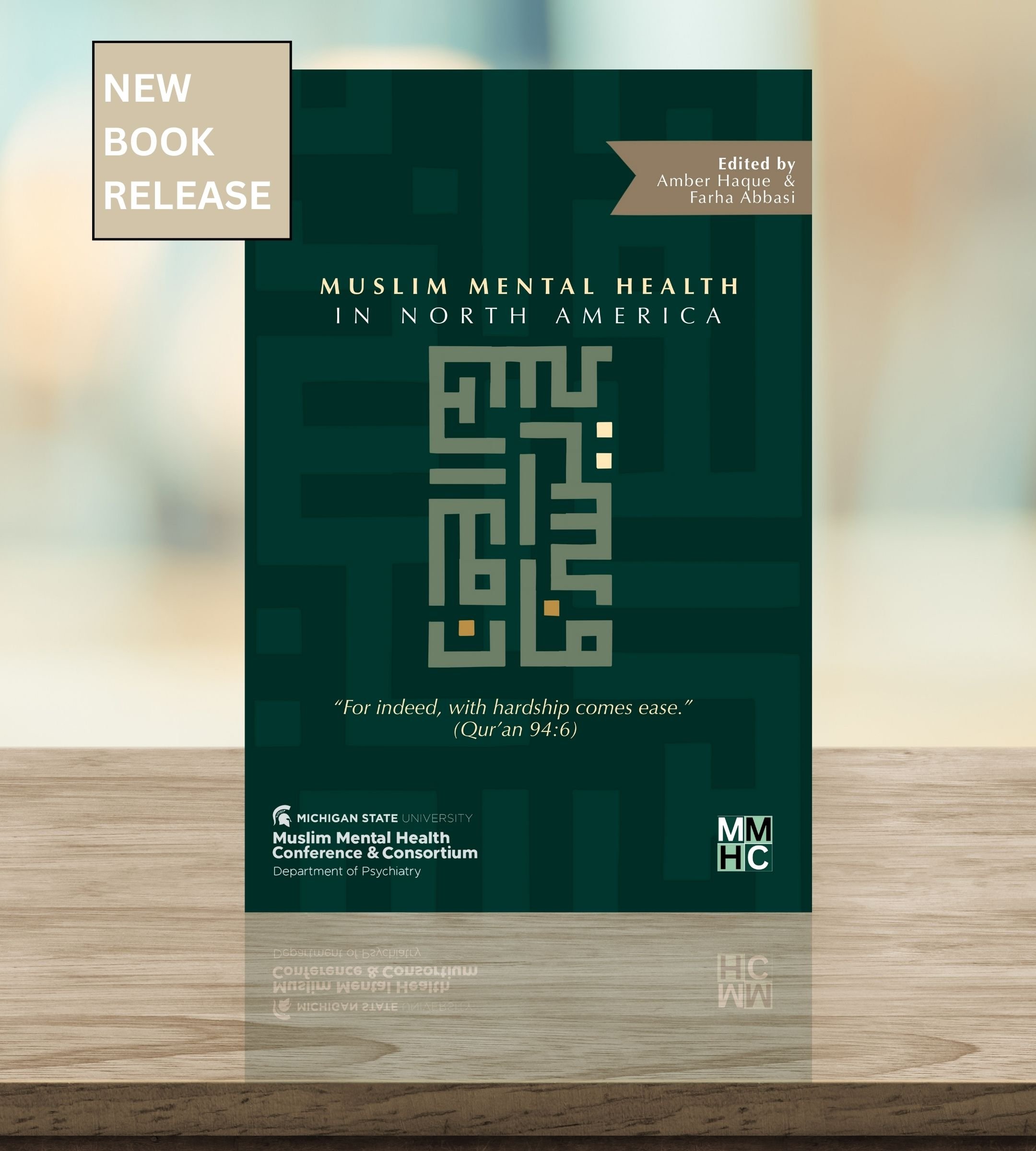Muslim Mental Health in North America

We are pleased to announce the publication of Muslim Mental Health in North America. This comprehensive volume brings together leading scholars, clinicians, and community advocates to explore the evolving landscape of Muslim mental health.
Muslim Mental Health in North America is a landmark volume bringing together leading clinicians, scholars, and community leaders to explore faith, culture, and wellbeing across Muslim communities in North America.
Edited by Drs. Amber Haque and Farha Abbasi, this book examines stigma, healing, intergenerational experiences, and the systems shaping mental health care today.
The volume offers insight for mental health professionals, educations, and community organizers seeking to better understand the diverse experiences of North American Muslims.
Each chapter integrates evidence-based research with cultural and religious insight, offering clinicians, researchers, and community leaders a framework for culturally competent and spiritually attuned care.
The book is now available for purchase online with proceeds directly supporting the work of the Muslim Mental Health Conference, advancing research, collaboration, and capacity-building in Muslim mental health.
Please use the links below to purchase the MMH Book from your preferred online retailer.
Topics Covered
Across its six sections, the book offers both scholarly depth and practical insight:
- Section One: A historical overview of the Muslim Mental Health Conference movement and its role in shaping the field.
- Section Two: Cultural and conceptual foundations, including chapters on stigma, diagnostic frameworks, community-based interventions, and Islamic psychology.
- Section Three: Mental health across the lifespan, with chapters on youth, women, marriage, and geriatric care.
- Section Four: Special populations, addressing conversion, incarceration, trauma-informed and healing-centered care, and disabilities.
- Section Five: Contemporary issues such as immigration, Islamophobia, media representation, workplace mental health, and digital frontiers in care.
- Section Six: Humanitarian and social service organizations, offering perspectives from practitioners advancing mental health in Muslim NGOs across North America.
